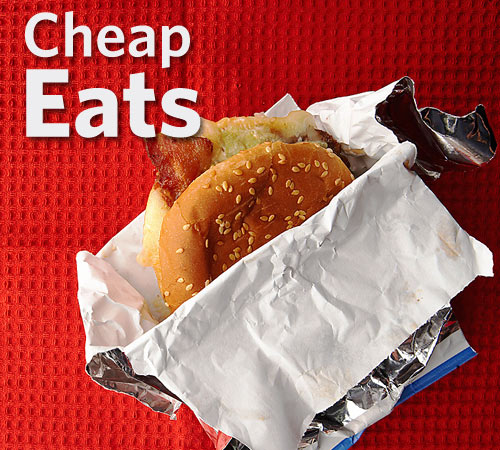Eating cheaper in a dry economy

Photos.com
November 11, 2008
For Mike Mago, it’s all about the grilled chicken kabobs.
Mago, junior in Business, is one among many University students spending more money at grocery stores than at local restaurants. Economy-driven price of meals has sent many students shopping for cheaper alternatives rather than splurging on Green Street. Chicken kabobs are Mago’s favorite home-cooked meal.
“I’m saving money and I’m getting better quality food,” Mago said. “Sometimes I’ll price-compare, but it’s usually always cheaper at the store.”

Grocery markets offer price alternatives to students wishing to eat at home rather than splurging at a restaurant.
“You definitely get more for your money,” said Mike Boyadjian, sophomore in LAS. “As opposed to a cheeseburger and fries on campus, you can get a meal and half if you just do it yourself.”
Get The Daily Illini in your inbox!
Students bogged down by limited income are forced to stretch the dollar.
“The average meal on Green Street is $7 or something, but I prefer to eat cheap,” graduate student Dee Dezwaan said. “It’s nice to go out once in a while, but I enjoy preparing food at home.”
Once in the grocery store, there’s always the possibility to dig deeper for better deals. Students said they look for buy-one-get-one-free deals, non-brand name food and special sales to ultimately lower the cumulative fee at checkout.
Still, the temptation to indulge sometimes is overwhelming.
“Sometimes it’s hard to resist the urge of ordering food,” said Peter Debnar, junior in Media. “If it is late at night and you’re in the middle of doing homework, ordering food sounds really easy. I just try to keep it at a minimum.”
A peek from the provider
The bottom line can tell a restaurant owner everything he or she wants to know: Are they making or losing money?
Wonderdogs owner Jay Feiz is all too familiar with his bottom line. He said he wants to do his best to keep prices down, and with the weakening economy in full stride, his supplies just keep going up.
“At the end of the day, my bottom line doesn’t look the same as it used to,” Feiz said of his restaurant, located at 605 S. Wright St. “I’m hoping, well, no, I’m praying for it to get better.”
Feiz said students are hurting businesses in two ways: not ordering as much as they used to or not ordering at all. Instead of buying two hot dogs, students are now buying one. And that’s if they even make it through the front door.
No matter what the economists predict, Big Mouth’s owner Nick Lavorato said he is still going to put out his best product.
But Lavorato said he is losing business in part due to the faltering economy. Lavorato said he noticed a slight decrease in profits starting in September.
“Once gas prices hit $4, I knew there was something going on,” Lavorato said. “It’s hurts the most with our lunch crowd. I think construction workers, who used to come in here a lot, are now bringing a packed lunch from home.”
Not every restaurant near Green Street is reporting sluggish business. While Flat Top Grill is not noticing a drop in its earnings, manager Breana Serouco said she is still hesitant about the fate of the economy.
“I think where we are working in Campustown is a bubble. I would not be surprised if in the coming months we see some sort of trickle-down effect in Champaign-Urbana,” Serouco said.
A word from the wise
“I can’t tell students how to budget their money,” said University economics professor Fred Gottheil. “Students have preferences based on income and price of goods. Who am I to say what to spend and what not to spend?”
Gottheil noted that there are two types of students on campus. Students dependent on their parents’ money won’t reconsider their money management.
The other cluster, made up mostly of students paying their own way through college, are going to be very conscious of faltering incomes and rising prices.
“We have to eat cheaper to save money,” said associate economics professor Elizabeth Powers. “Think about it. You can make a sandwich with whatever you want on it for around 50 cents. It would cost about $6 at a restaurant. That’s an obvious savings.”
Of course, eating cheap food does not always assume it will be healthy. Junk food is rich in preservatives and additives to seal a hungry stomach, but that’s not recommended.
“Probably the best way to save money is to eat junk food,” said finance professor Heitor Almeida. “But that’s not good for your health so, in the long run, you’re not really helping yourself out. But I still would recommend students find the cheapest food they can find.”






